US bases in Iraq are where terrorist elements are nurtured: Analyst
By Ali Ghorban Bagheri
The continued presence of US forces in Iraq is detrimental to the Arab country’s security as Washington has always put its interests over Iraq’s interests, says a political commentator.
Mohammed al-Khazaali, in an interview with the Press TV website, said security analyses show American bases are where terrorist and extremist groups are nurtured.
He called for the immediate ouster of US forces from the Arab country, saying Americans have a “dark history” of killing Iraqi people and using extremist groups as a tool to advance US interests.
“Based on the findings of many security analyses, the bases of the US-led coalition are where terrorist elements are nurtured, and hence the continued presence of the US forces in Iraq poses a threat to the security of Iraq as well as its neighbors,” Khazaali told the Press TV website.
More than two decades into America’s deadly invasion of Iraq, 2,500 American troops are still present in the country who Washington claims are meant to advise and assist Iraqi forces fighting the remnants of the Daesh terror group.
Iraqi officials and political groups have repeatedly called for the ouster of American forces from the country, especially since the 2020 US assassination of Iran’s top anti-terror commander General Qassem Soleimani in Baghdad.
According to the outcome of the “strategic dialogue” held between the US and Iraq in 2020 and 2021, the US was stipulated to end its military presence in Iraq by the end of 2021.
However, Washington later said it would only withdraw its combat forces from the Arab country and would keep hundreds of troops in an advisory capacity, which experts dismiss as an attempt to hoodwink the international community.
Khazaali said all branches of government in Iraq agree that the US should get out of Iraq, stressing that the country can alone fight terrorists there.
“The three branches of the Iraqi government, namely the executive, the parliament and the judiciary, have repeatedly called for the withdrawal of the forces of the US-led coalition,” he stressed.
“They have declared that Iraq does not need these forces as its own forces are capable of protecting Iraq’s security and have a long experience of fighting Al-Qaeda and Daesh.”
Khazaali cited remarks by Iraqi Prime Minister Mohammed Shia al-Sudani earlier this week that Iraq does not need foreign combat troops and even the presence of military advisors should end.
“We are not in need of combat troops; what we have are military advisers, but even their presence needs regulation, in terms of their size, location and how long they remain,” Sudani told the UAE-based paper The National.
He added that there needs to be a “clear timeline" to end the presence of foreign troops in Iraq.
Khazaali, on the reason behind the US insistence on remaining in Iraq despite the elimination of the Daesh threat, said the US presence in Iraq is only in the interests of the US government and not Iraqis.
“The US is trying to boost its influence in Iraq as it has a strategic significance for the US. Iraq can be a base for the US from which it can better advance its West Asia interests. Therefore, the Americans do everything to stay in Iraq,” he said.
Khazaali stressed that the Iraqi government should put more pressure on the US to end its military presence in Iraq, as it is only a source of problems.
“The American forces’ continued presence is another form of occupation that should be dealt with more seriously by the Iraqi government,” he noted in a conversation with the Press TV website.
The analyst warned that anti-US resistance forces in Iraq are determined to fight the occupiers in case they refuse to leave the Arab country.
“Efforts by Iraqi resistance forces foiled America’s plots to sow divisions among Iraqis and to incite radical groups into destroying Iraq,” he stated.
“These resistance forces appear to be determined to confront the American forces and if necessary, force them out of Iraq. The US forces killed many Iraqis and the extremist groups they nurtured also killed many Iraqis.”
(Translated by Alireza Hashemi)
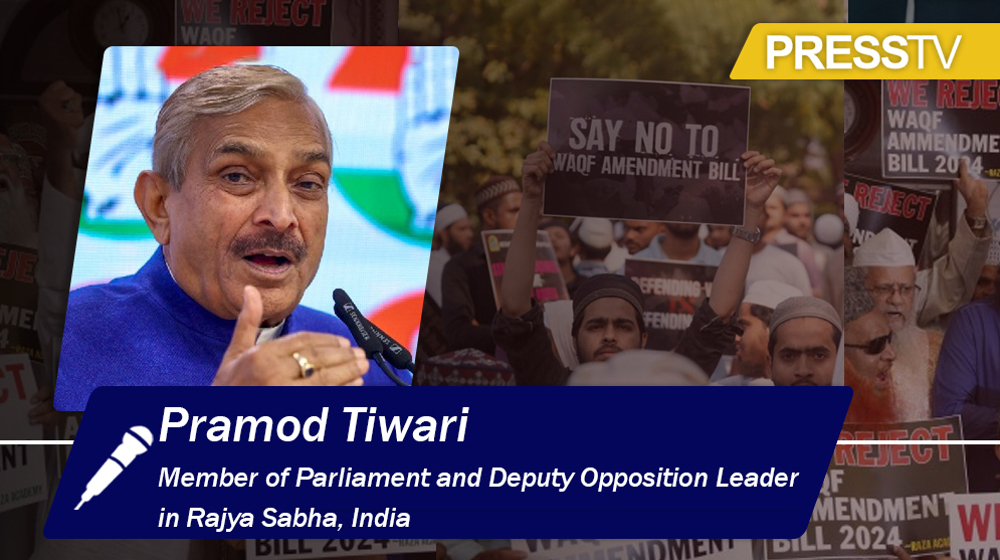
Waqf Bill not just an attack on Indian Muslims but on India’s constitutional fabric: MP
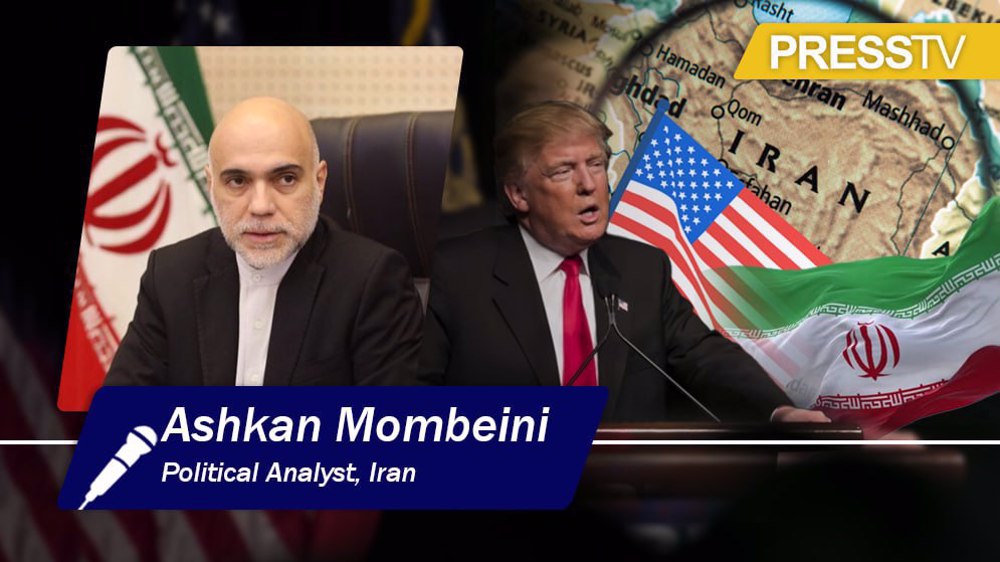
Trump's war rhetoric against Iran to impose heavy costs on US and allies: Analyst
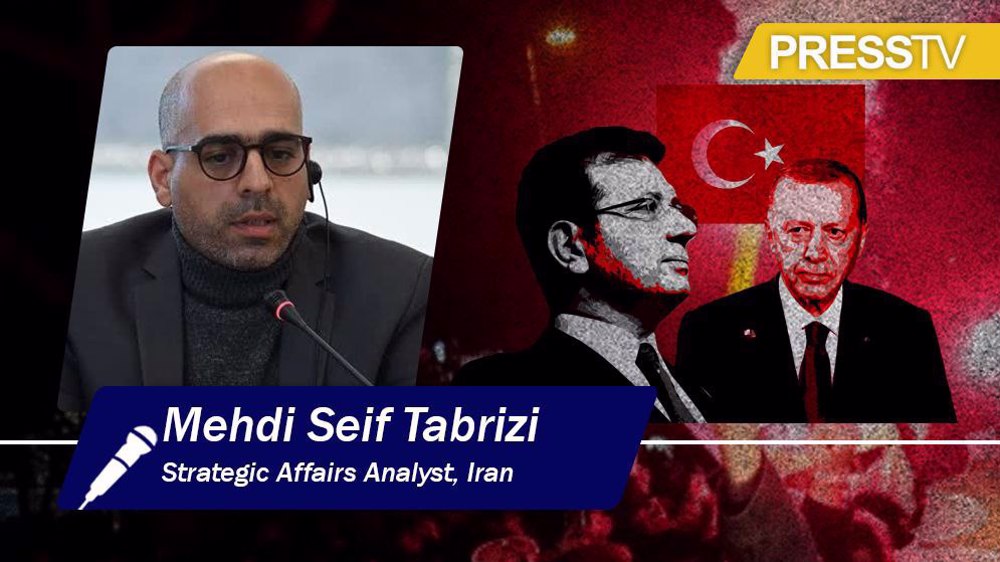
Turkey’s political unrest to significantly weaken Erdoğan’s grip on power: Analyst
At least 65 Palestinians killed inside Israeli prisons
VIDEO | US deadly aggression vs Yemen
Iran denies US investors will be present in its trade fair
Israeli forces kill three Palestinians in intensified West Bank raids
VIDEO | Press TV's news headlines
Nearly 600 children killed in renewed Israeli assault on Gaza: UN agency
Moroccan port workers protest Maersk ship carrying F-35 parts to Israel
Iran will ‘chart its own path’ if US refuses to negotiate on ‘equal footing’: President


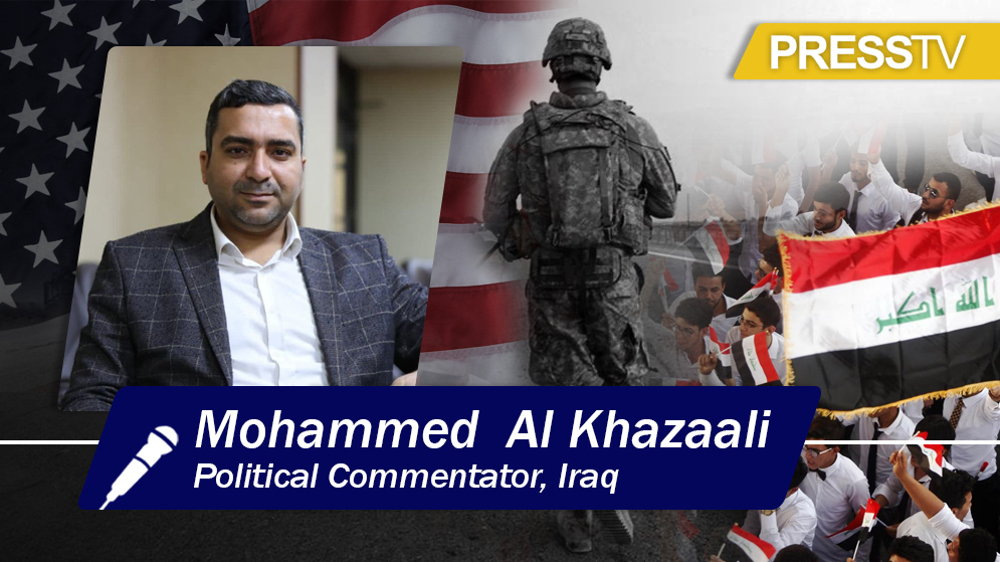



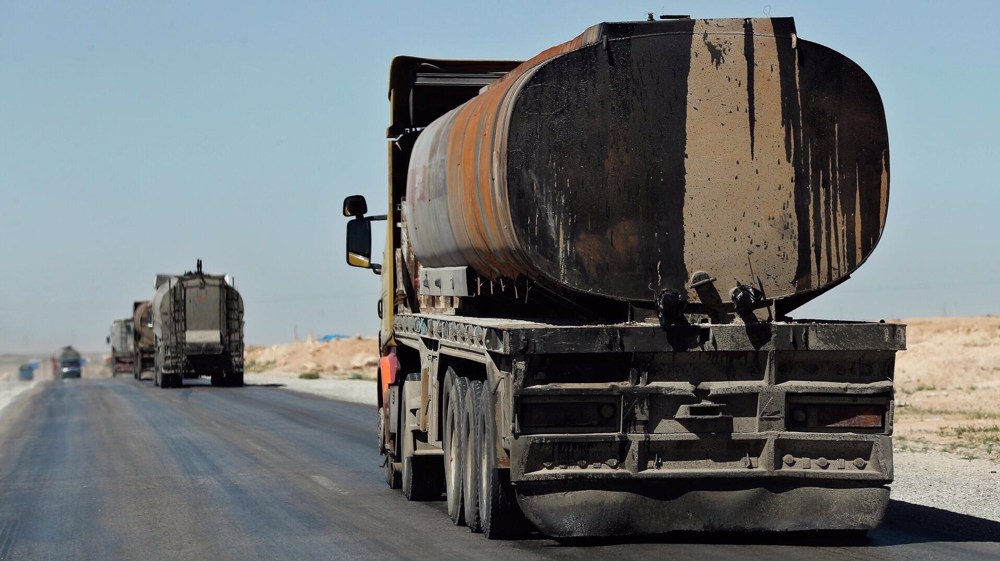
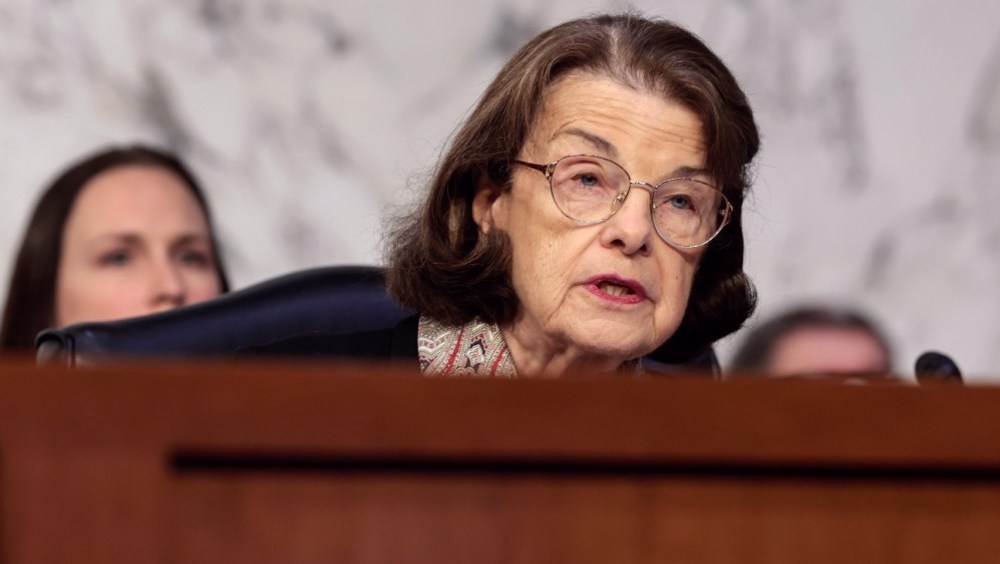
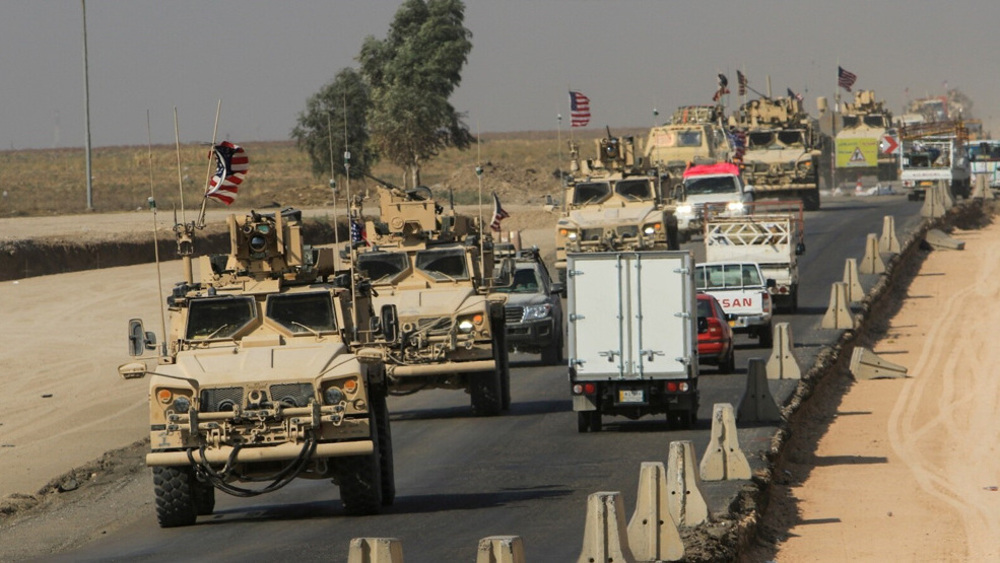
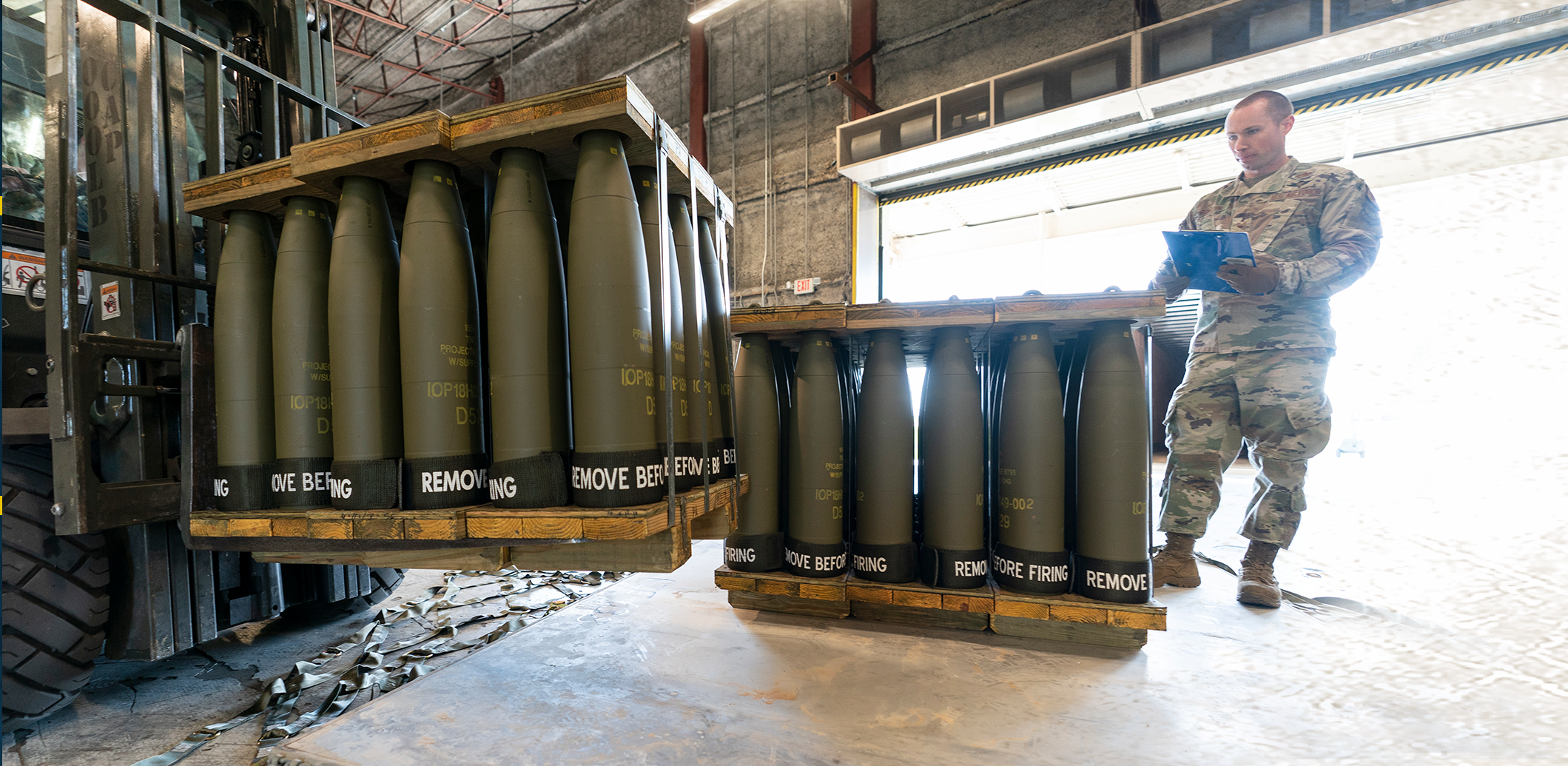

 This makes it easy to access the Press TV website
This makes it easy to access the Press TV website